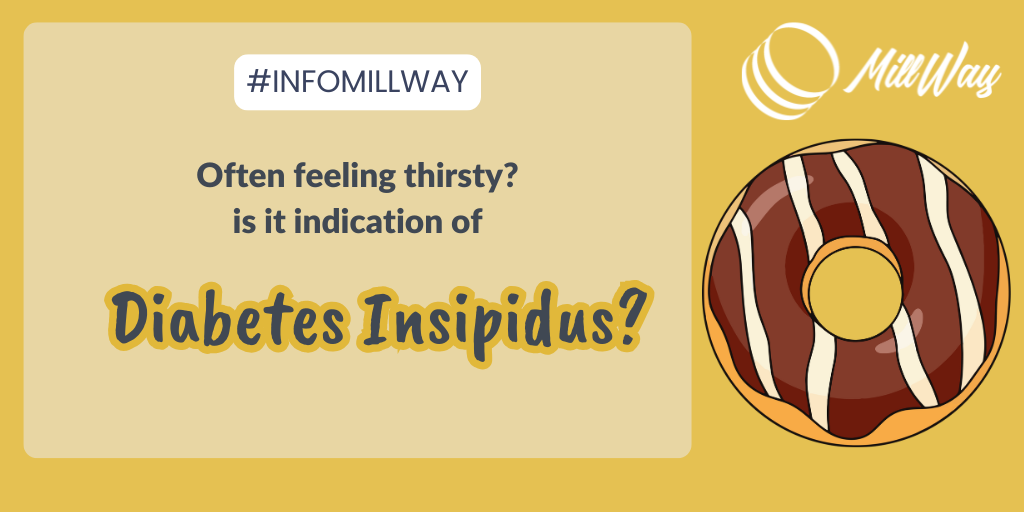
Diabetes Insipidus (DI) is a medical condition caused by a hormone antidiuretic hormone (ADH) or vasopressin disorder, which regulates the body's fluid balance. Below is an explanation of diabetes insipidus:
Types of Diabetes Insipidus
1. Central Diabetes Insipidus (CDI): Caused by insufficient ADH production in the pituitary gland.
2. Nephrogenic Diabetes Insipidus (NDI): Caused by a malfunction in the kidney's response to ADH.
3. Gestational Diabetes Insipidus: Occurs during pregnancy due to hormonal changes.
4. Diabetes Insipidus Due to Medication/Toxins: Caused by the consumption of certain medications or exposure to toxins.
Symptoms
1. Excessive, diluted urine output (polyuria).
2. Excessive thirst (polydipsia).
3. Dehydration.
4. Fluid deficiency.
5. Headaches.
6. Fatigue.
7. Difficulty sleeping.
Causes
1. Head injury or brain surgery.
2. Pituitary gland or brain tumor.
3. Infections (meningitis, encephalitis).
4. Cancer.
5. Genetic disorders.
6. Use of certain medications (lithium, demerol).
7. Kidney damage.
Diagnosis
1. Urine tests to measure glucose and electrolytes.
2. Blood tests to measure glucose levels and ADH hormones.
3. Physical examination and health history review.
4. Imaging tests (MRI, CT scan) to examine the brain and kidneys.
Treatment
1. Consuming ADH hormone (desmopressin) orally or by injection.
2. Managing fluid intake.
3. Taking diuretics to reduce urine production.
4. Treating underlying causes (if any).
5. Adopting a healthy lifestyle.
Prevention
1. Consuming adequate fluids.
2. Avoiding alcohol and caffeine consumption.
3. Managing stress.
4. Eating a balanced diet.
5. Avoiding excessive physical activity.
Complications
1. Severe dehydration.
2. Kidney failure.
3. Brain damage.
4. Infections.
5. Death.
If you experience any of these symptoms, consult a doctor immediately for an accurate diagnosis and appropriate treatment.
Sources:
